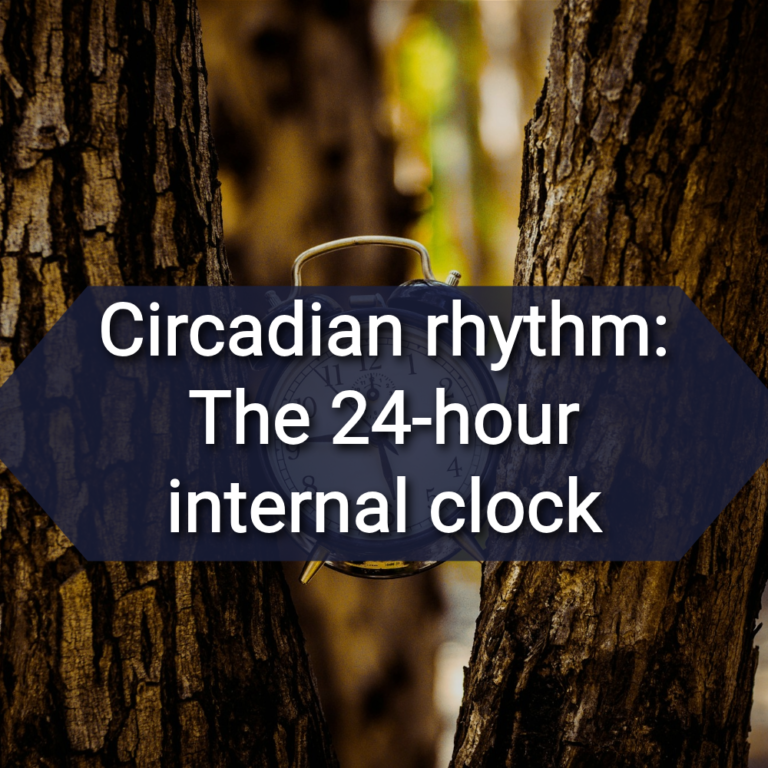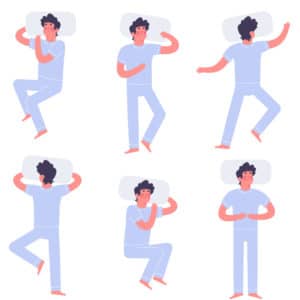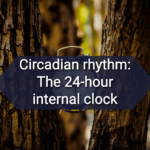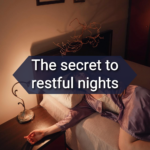Have you ever wondered why you feel sleepy at night and alert during the day? Or why jet lag hits you so hard when you travel across time zones? The answer lies in your body’s internal clock, known as the circadian rhythm. This fascinating biological process regulates not just your sleep-wake cycle, but impacts nearly every aspect of your health and well-being.
Key Takeaways
- Your circadian rhythm is a roughly 24-hour internal clock that regulates various bodily functions, including sleep, hormones, and metabolism.
- Light is the primary factor influencing your circadian rhythm, but other factors like food intake and physical activity also play a role.
- Disruptions to your circadian rhythm can lead to various health issues, including sleep disorders, mood problems, and metabolic disturbances.
- You can optimize your circadian rhythm through consistent sleep schedules, light exposure management, and healthy lifestyle habits.
- Understanding your body’s natural rhythms can help you enhance your overall health, productivity, and well-being.
What is circadian rhythm?
Your circadian rhythm is your body’s natural 24-hour cycle — it’s like having a tiny conductor inside you, orchestrating a symphony of biological processes.
This internal clock tells your body when to sleep, when to wake up, and influences several other bodily functions like hormone production, digestion, and body temperature.
Your body’s time keeper
At the heart of your circadian rhythm is a tiny cluster of nerve cells in your brain called the suprachiasmatic nucleus (SCN). Located in the hypothalamus, this “master clock” coordinates the timing of various biological processes throughout your body.
The SCN receives light signals from your eyes, which helps synchronize your internal clock with the external environment. This is why exposure to natural light in the morning can help wake you up, while darkness in the evening signals that it’s time to wind down.
How does your circadian rhythm work?
Your circadian rhythm influences a wide range of bodily functions, including:
- Sleep-wake patterns
- Hormone production
- Body temperature regulation
- Metabolism
- Cognitive function
- Mood
Throughout the day, your body releases different hormones and neurotransmitters to keep you alert or make you sleepy. For example:
- Cortisol, often called the “stress hormone,” peaks in the morning to help you wake up and feel energized.
- Melatonin, the “sleep hormone,” increases in the evening to prepare your body for sleep.
Circadian rhythms in different age groups
Your circadian rhythm isn’t static — it changes as you age:
In babies
Newborns don’t develop a circadian rhythm until they’re a few months old. That’s why their sleep patterns are often erratic in the early days. Babies usually start to produce melatonin at about 3 months old, with cortisol development occurring between 2 and 9 months.
In teenagers
During the teen years, a shift in circadian rhythm occurs. Teenagers often experience a “sleep phase delay,” feeling tired later at night (around 10 or 11 PM) and wanting to sleep later in the morning.
In adults
Adults with healthy habits typically have a consistent circadian rhythm. However, people over 60 may notice changes, often going to bed earlier and waking up earlier.
What disrupts circadian rhythms?
Several factors can throw your circadian rhythm out of whack:
- Jet lag
- Shift work
- Irregular sleep schedules
- Excessive exposure to blue light at night
- Certain medications
- Mental health conditions
- Poor sleep habits
Why jet lag happens
Jet lag is a prime example of circadian rhythm disruption. When you travel across time zones, your internal clock remains synchronized with your origin time zone, causing a mismatch with your new environment. This can lead to fatigue, insomnia, and other symptoms until your body adjusts to the new schedule.
Circadian rhythm disorders
Sometimes, disruptions to the circadian rhythm can lead to more serious conditions:
- Delayed Sleep Phase Disorder: You tend to fall asleep and wake up much later than the average person.
- Advanced Sleep Phase Disorder: You fall asleep and wake up much earlier than most people.
- Shift Work Sleep Disorder: Your work schedule conflicts with your natural circadian rhythm.
- Non-24-Hour Sleep-Wake Rhythm Disorder: Your sleep-wake cycle isn’t synchronized with the 24-hour day.
- Irregular Sleep-Wake Rhythm Disorder: You have no clear sleep-wake pattern.
How to optimize your circadian rhythm
To get your internal clock ticking smoothly:
- Stick to a consistent sleep schedule, even on weekends.
- Expose yourself to bright light in the morning.
- Avoid blue light from screens in the evening.
- Create a relaxing bedtime routine.
- Exercise regularly, but not too close to bedtime.
- Limit caffeine and alcohol intake, especially in the afternoon and evening.
- Maintain a comfortable sleep environment with proper temperature and lighting.
The power of light therapy
Light therapy can be particularly effective in resetting your circadian rhythm. Exposure to bright light in the morning can help shift your sleep-wake cycle earlier, while evening light exposure can delay it. This technique is often used to treat seasonal affective disorder (SAD) and other circadian rhythm disorders.
The future of circadian rhythm research
Scientists continue to uncover new insights into how circadian rhythms affect our health and well-being. Emerging areas of research include:
- Chronotherapy: Timing medical treatments to align with your body’s natural rhythms for maximum effectiveness.
- Circadian nutrition: Optimizing meal timing to support your internal clock and metabolism.
- Personalized sleep-wake recommendations based on your unique genetic profile.
Embracing your body’s natural rhythms
Your circadian rhythm plays a crucial role in your daily life and long-term health. By understanding and working with your body’s internal clock, you can optimize your sleep, enhance your productivity, and improve your overall well-being.
Take the time to observe your natural patterns and make adjustments to your lifestyle that support a healthy circadian rhythm. Your body (and mind) will thank you for it!
Circadian Rhythm FAQs
What is the difference between circadian rhythm and sleep-wake cycle?
The circadian rhythm is your body’s 24-hour internal clock that regulates various biological processes, while the sleep-wake cycle is a specific part of the circadian rhythm that governs when you feel sleepy or alert.
How long does it take to reset your circadian rhythm?
It typically takes about one day per time zone crossed to fully adjust your circadian rhythm. However, making small adjustments to your sleep schedule can take a few days to a couple of weeks.
Can circadian rhythms affect weight loss?
Yes, disrupted circadian rhythms can impact metabolism and hormone production, potentially making it harder to lose weight or maintain a healthy weight.
Is it bad to sleep during the day and be awake at night?
While occasional changes to your sleep schedule are generally fine, consistently reversing your sleep-wake cycle can lead to health issues over time, as it goes against your body’s natural circadian rhythm.
How does aging affect circadian rhythms?
As we age, our circadian rhythms tend to shift earlier, causing older adults to feel sleepy earlier in the evening and wake up earlier in the morning. This can also lead to more fragmented sleep patterns.











